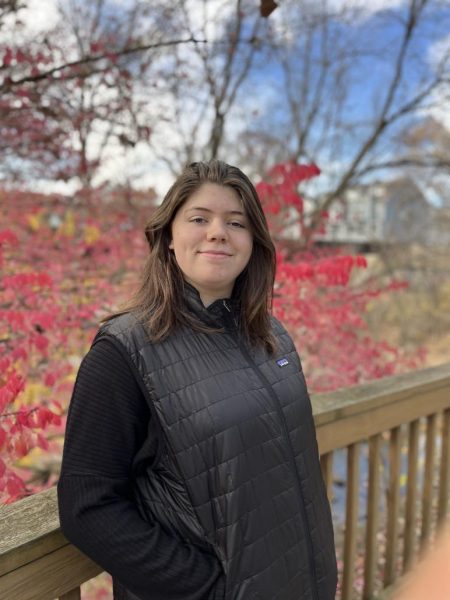When hearing the phrase “forensic sciences speech,” most people would give you a blank stare. However, if you ask junior Juniper (Junie) Zetocha what forensic speech is, she’ll not only tell you what it is but also teach you as well.
“When I started [forensic speech], I was very lost,” Junie said, “but as I looked into more things, trying to branch out and figure out what I’m passionate about, it opened my eyes to a new world of different sciences and strategies.”
Junie started her forensic speech career freshman year not knowing a single thing about forensics or giving speeches. However, Junie had always been interested in learning new things, and forensics speech seemed to be a good match for her curiosity.
When giving a forensic speech, the speaker must present their subject topic vocally to a judge—the topic is up to the speaker. In the allotted time, the speaker must convince the judge why their topic is important and educate judges about its impact and effects.
Junie recounted her first forensic speech as nice and commented on how she considered it pretty basic and juvenile, but she thought of it fondly as an important step in her growth.
“After getting feedback and [undergoing] personal growth,” Junie said, “I’ve been molded and motivated each time to give a better speech than the last.”
However, forensic speech did much more than improve Junie’s public speaking and deduction skills. It also improved her social life and confidence levels as well. Before forensic speech entered her life, she found it hard to give presentations or speak to peers and teachers alike because she was afraid of saying the wrong words or stuttering.
Nevertheless, in forensic speech competitions, opponents could be more appropriately classified as friendly rivals rather than competitors. In Junie’s experience, she has had many of her competitors come up to her personally to geek out over topics or praise her for certain portions of her speech regardless of errors.
“Generally, the people who do speech are very friendly and very open,” Junie said. “They very much not only want to better themselves, but [also] other people.”
These friendly exchanges have raised a great deal of Junie’s confidence and prowess. Rather than being conscious of making mistakes, Junie’s mindset has altered to thinking about how best to execute her topic effectively. She does this by not worrying so much about how flawless the beginning is, but rather how extraordinary and informative the ending can be.
“[Being] self-aware [and] also not so self-aware [is important],” Junie said, “because when you make mistakes, nobody else notices. So, I’ve trained myself, [and] once I start, even if I make a mistake, I just go on [with it] [because] I’m not gonna be held up on every little mistake I make.”
For Junie, this mantra has transformed her personal ideals and outcomes. Instead of focusing on every detail of every mistake, Junie focuses on every point of the positives: being empathic with other people, discovering new and exciting topics, and believing in herself and how she can spread more good into the world.
“Honestly, forensic speech as a whole has improved my confidence, my self-esteem, and my self-worth,” Junie said. “To know that I’m worthy of doing all these things [has] helped me improve my attitude and so much more. I know that it seems awful with these huge issues that seem like we can’t fix, [but] there’s always something we can do.”





























































































Summer Wu • Sep 26, 2023 at 10:00 pm
So glad to see an article about forensics, and no one better to talk about it than Junie!! Great job Tilley